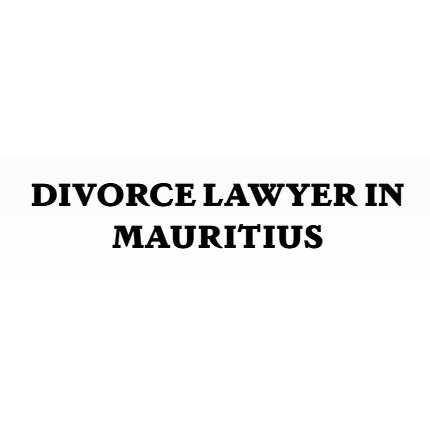Best Private Equity Lawyers in Mauritius
Share your needs with us, get contacted by law firms.
Free. Takes 2 min.
Or refine your search by selecting a city:
List of the best lawyers in Mauritius
About Private Equity Law in Mauritius
Private equity refers to investments made directly into private companies or buyouts of public companies resulting in their delisting from stock exchanges. In Mauritius, private equity has become a key aspect of the financial sector, attracting both local and international investors. The country has established a robust framework that supports private equity funds, investment vehicles, and cross-border transactions. Mauritius is often chosen as a jurisdiction for structuring investment funds due to its investor-friendly legislation, political stability, competitive tax regime, and network of double tax avoidance agreements.
Why You May Need a Lawyer
Navigating the private equity landscape in Mauritius can be complex, especially for those unfamiliar with the local regulatory environment. Some common scenarios where legal counsel is essential include:
- Setting up a private equity fund or investment vehicle
- Navigating licensing and regulatory approval requirements
- Drafting and negotiating term sheets, shareholder agreements, or investment agreements
- Conducting due diligence on target companies or investments
- Ensuring compliance with local tax and reporting obligations
- Restructuring or exiting investments
- Managing cross-border investments or transfers
- Resolving disputes with partners, investors, or regulators
A qualified legal professional can provide guidance on local laws, ensure all documentation is accurate and enforceable, and help protect your interests throughout the investment lifecycle.
Local Laws Overview
Mauritius has developed a modern legal and regulatory framework catering to private equity and investment funds. Key legislative instruments include:
- Companies Act 2001 - Governs the formation and operation of companies in Mauritius.
- Financial Services Act 2007 - Provides the licensing framework for financial services, including private equity funds, under the oversight of the Financial Services Commission (FSC).
- Securities Act 2005 - Regulates securities transactions and fund administration activities.
- Income Tax Act 1995 - Sets out the tax obligations, exemptions, and incentives available to various investment vehicles.
- Limited Partnerships Act 2011 - Provides for the structuring of investment funds and special purpose vehicles using limited partnership models popular in private equity.
Mauritius also offers Global Business licenses (GBL), which allow entities to operate with tax efficiencies and access an extensive network of double tax avoidance agreements. All investment funds and private equity structures must comply with anti-money laundering laws and the requirements of the FSC.
Frequently Asked Questions
What is a private equity fund?
A private equity fund is a pooled investment vehicle where investors combine their capital to invest in private companies or assets, often aiming for high returns over a medium or long-term period.
Why is Mauritius considered attractive for private equity structuring?
Mauritius offers flexible business structures, efficient tax rates, a stable regulatory framework, and a vast network of double tax avoidance treaties with countries in Africa, Asia, and beyond. This makes it a preferred jurisdiction for structuring private equity investments.
What are the main types of legal structures used in private equity in Mauritius?
Common structures include Global Business Companies, Limited Partnerships, Protected Cell Companies, and Trusts. The chosen structure often depends on investment strategy, investor base, and regulatory requirements.
Is it necessary to obtain a license to operate a private equity fund in Mauritius?
Yes, most private equity funds require licensing from the Financial Services Commission. The process involves meeting capital requirements, demonstrating compliance with anti-money laundering rules, and appointing local directors or administrators.
How are private equity returns taxed in Mauritius?
Mauritius provides a favorable tax regime for private equity. Global Business Companies benefit from a low effective tax rate, and there is generally no capital gains tax. Tax treatment can vary based on structure and may be subject to ongoing changes, so legal advice is essential.
What due diligence is required before investing in or establishing a private equity fund?
Due diligence includes reviewing the fund structure, regulatory compliance, financial performance of target companies, governance arrangements, and reputational background of promoters and management.
How are disputes in private equity transactions resolved in Mauritius?
Disputes can be resolved through negotiation, mediation, arbitration, or litigation. Mauritius is an established arbitration hub, offering efficient mechanisms for resolving cross-border commercial disputes.
Are there restrictions on foreign ownership or investment in Mauritius private equity?
Mauritius generally welcomes foreign investment and does not impose significant restrictions. However, regulatory approval and compliance with know-your-client and anti-money laundering regulations are mandatory.
Do private equity funds in Mauritius have reporting or ongoing compliance obligations?
Yes, funds are subject to annual reporting, audit requirements, compliance with FSC directives, and adherence to anti-money laundering and counter-terrorism financing regulations.
How can investors or fund managers ensure compliance with local laws?
Working with experienced legal professionals, financial advisors, and compliance specialists ensures that all regulatory, tax, and operational obligations are met efficiently.
Additional Resources
For more information or to seek guidance on private equity in Mauritius, consider the following resources and organizations:
- Financial Services Commission (FSC) - The principal regulator for the non-banking financial services sector, including private equity funds.
- Registrar of Companies - Handles company and partnership registration, filings, and annual compliance.
- Mauritius Revenue Authority (MRA) - Provides guidance on the tax regime applicable to private equity funds and their investors.
- Mauritius Investment Promotion Authority (EDB) - Promotes investment opportunities and provides guidance for foreign investors.
- Mauritius Chamber of Commerce and Industry - Offers insights and updates on operational matters affecting private equity and investment funds.
- The Mauritius International Arbitration Centre - Facilitates the resolution of commercial disputes, including those arising from private equity investments.
Next Steps
If you are considering investing in private equity in Mauritius or are seeking to set up a fund, here are some practical steps to follow:
- Identify your investment objectives and the type of fund structure that best suits your needs
- Engage a qualified legal advisor experienced in private equity and investment funds
- Conduct comprehensive due diligence on the opportunities and regulatory requirements
- Prepare and review all legal documents, including fund formation agreements, offering documents, and compliance manuals
- Apply for necessary licenses, registrations, and regulatory approvals with the FSC and other relevant authorities
- Establish robust governance, compliance, and reporting systems to ensure ongoing regulatory adherence
- Stay informed about updates to laws, tax obligations, and market practices relevant to private equity in Mauritius
Seeking timely legal advice can greatly enhance the success of your private equity activities and ensure compliance with the evolving regulatory landscape in Mauritius.
Lawzana helps you find the best lawyers and law firms in Mauritius through a curated and pre-screened list of qualified legal professionals. Our platform offers rankings and detailed profiles of attorneys and law firms, allowing you to compare based on practice areas, including Private Equity, experience, and client feedback.
Each profile includes a description of the firm's areas of practice, client reviews, team members and partners, year of establishment, spoken languages, office locations, contact information, social media presence, and any published articles or resources. Most firms on our platform speak English and are experienced in both local and international legal matters.
Get a quote from top-rated law firms in Mauritius — quickly, securely, and without unnecessary hassle.
Disclaimer:
The information provided on this page is for general informational purposes only and does not constitute legal advice. While we strive to ensure the accuracy and relevance of the content, legal information may change over time, and interpretations of the law can vary. You should always consult with a qualified legal professional for advice specific to your situation.
We disclaim all liability for actions taken or not taken based on the content of this page. If you believe any information is incorrect or outdated, please contact us, and we will review and update it where appropriate.
Browse private equity law firms by city in Mauritius
Refine your search by selecting a city.

















